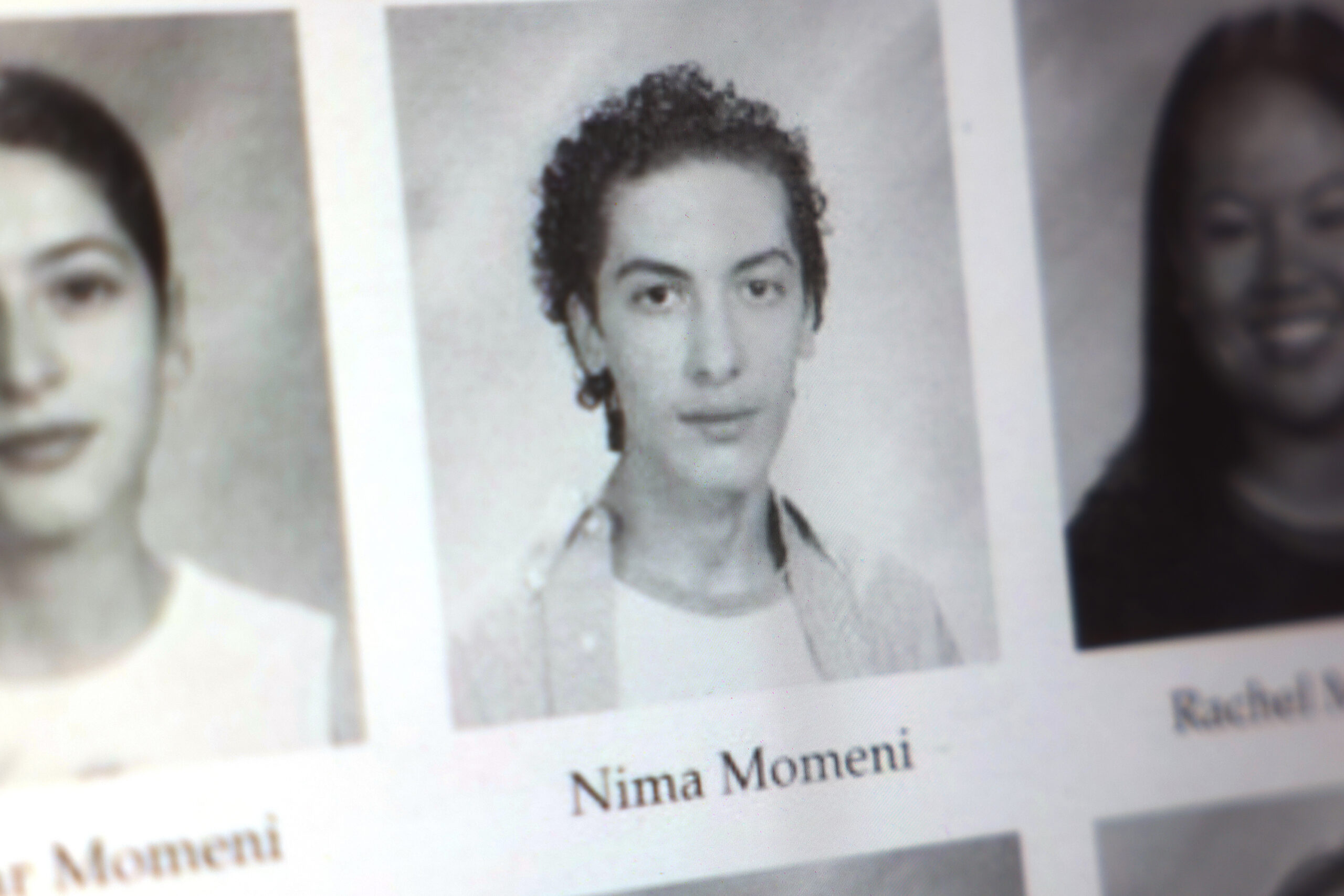When alleged killer Nima Momeni, his mother and sister, Khazar, walked off a plane at San Francisco International Airport in 1999, the trio began a new life after fleeing abuse from the children’s father in Iran, court documents revealed.
The three were seeking asylum after “years of violence and abuse” at the hands of the family patriarch, a dentist, said their mother. None in the trio, nor other family members, could have imagined that some two decades later, Nima, now 38, would be charged with murder in the fatal stabbing of tech executive Bob Lee on the streets of San Francisco.
“When I read in papers that he was a suspect in Bob Lee’s murder, I was shocked,” a woman named Soheila, who did not provide a last name, wrote in a letter of support for her family friend that was submitted to the San Francisco Superior Court in a push for Momeni’s release on bail. “It would have been less surprising to hear that he had been hit by a meteor than to hear this news.”
The letter is one of a handful from family, friends, neighbors and employees of Nima that paint a picture of the family after they fled Iran and built new lives in the Bay Area. The letters also shed light on Nima’s financial success as well as his focus on family and traditions.
The characterization of Nima in the correspondence contrasts starkly with the crime prosecutors say he committed on April 4 under the Bay Bridge and media portrayals of him as a man who was into drugs and partying and had a violent streak as well as financial troubles.
An argument over Khazar, Nima’s sister—whom Lee was close to—allegedly preceded the killing and may be linked to the motive, according to prosecutors. Nima pleaded not guilty to murder, and his attorney, Paula Canny, argued that the events that led to Lee’s death were an accident and self-defense.
Neither the Momenis nor their mother could be reached for comment. Canny did not respond to a request for comment.
Fleeing Iran
Nima was 14 when he arrived in the United with his sister and their mother, Mahnaz Tayarani. The trio was “shocked to suddenly be cut off from the environment” they previously knew, Tayarani wrote in a letter to Judge Victor Hwang, asking for the release of her son on bail.
“Nima is one year older than I am. We have been together our entire lives, from our years in Iran to our new life here in the United States,” his sister, Khazar, wrote. “Together with our mother, we are a very close family.”
The family applied for asylum in the United States, according to Canny, who said her client could face deportation if he is convicted.
Life in Iran
Tayarani met and married her husband in her eastern Iranian hometown of Mashhad.
“Mahnaz married at an early age shortly after high school to a handsome dentist with an artistic streak,” wrote Soheila, a longtime friend and high school classmate of Tayarani’s. “We were amazed at her luck in finding a romantic, handsome husband.”
Sometime after the wedding, Tayarani and her husband moved to Tehran, Iran’s capital city. Her friend had little contact with her from that point on.
Nima was born in Tehran when his mother was 23, wrote Tayarani. The next year, Khazar, whom Nima has always been protective of, was born.
Despite the move, Tayarani kept in contact with family. The siblings’ cousin, Maral, wrote that they visited the Momeni home in Tehran, which another letter said was a “spacious house in an affluent area.”
‘Years of Abuse and Violence’
“I had no choice but to take my children from Iran. I had endured years of abuse and violence at the hands of my husband,” Tayarani wrote in one of the letters. “They too had endured years of abuse and violence.”
She kept the abuse from her friend, who had moved to the United States and helped the family settle here.
“As a woman in Iran, they tend to hide their domestic violence issues as private, shameful matters,” Soheila wrote. “Perhaps that is why I did not hear from her much after her wedding.”
A New Life in America
Once in the Bay Area, the trio—none of whom spoke English—settled in a guest room of Soheila’s East Bay home.
Nima and Khazar started school, where he refused to eat lunch because he rejected handouts in the form of free lunch, his mother wrote. Meanwhile, Tayarani got a job at a flower shop and was soon able to afford an apartment, Soheila wrote.
Once out of high school, Nima—who is said to be self-taught in the IT field—helped pay for his mother’s education as a dental hygienist, she wrote.
His generosity also extended to his sister, who moved in with him after she broke up with a boyfriend in her 20s, wrote their mother. Just weeks before his arrest, he bought his mother a new BMW, Soheila wrote.
“When Nima gives, he does not expect something in return,” his sister wrote. “He gives because that is his nature.”
A high school friend of Nima’s who only gave his first name, Ryan, also wrote of Nima’s generosity. When Ryan’s mother was sick, Nima often stopped by to check on her and would take Ryan’s father for outings after his wife’s death. Nima even brought filet mignon to feed the family dog, Ryan wrote.
“He is a very generous person with a strong moral code,” the friend wrote.
Momeni is expected to return to court on Tuesday, when his preliminary hearing will begin.
